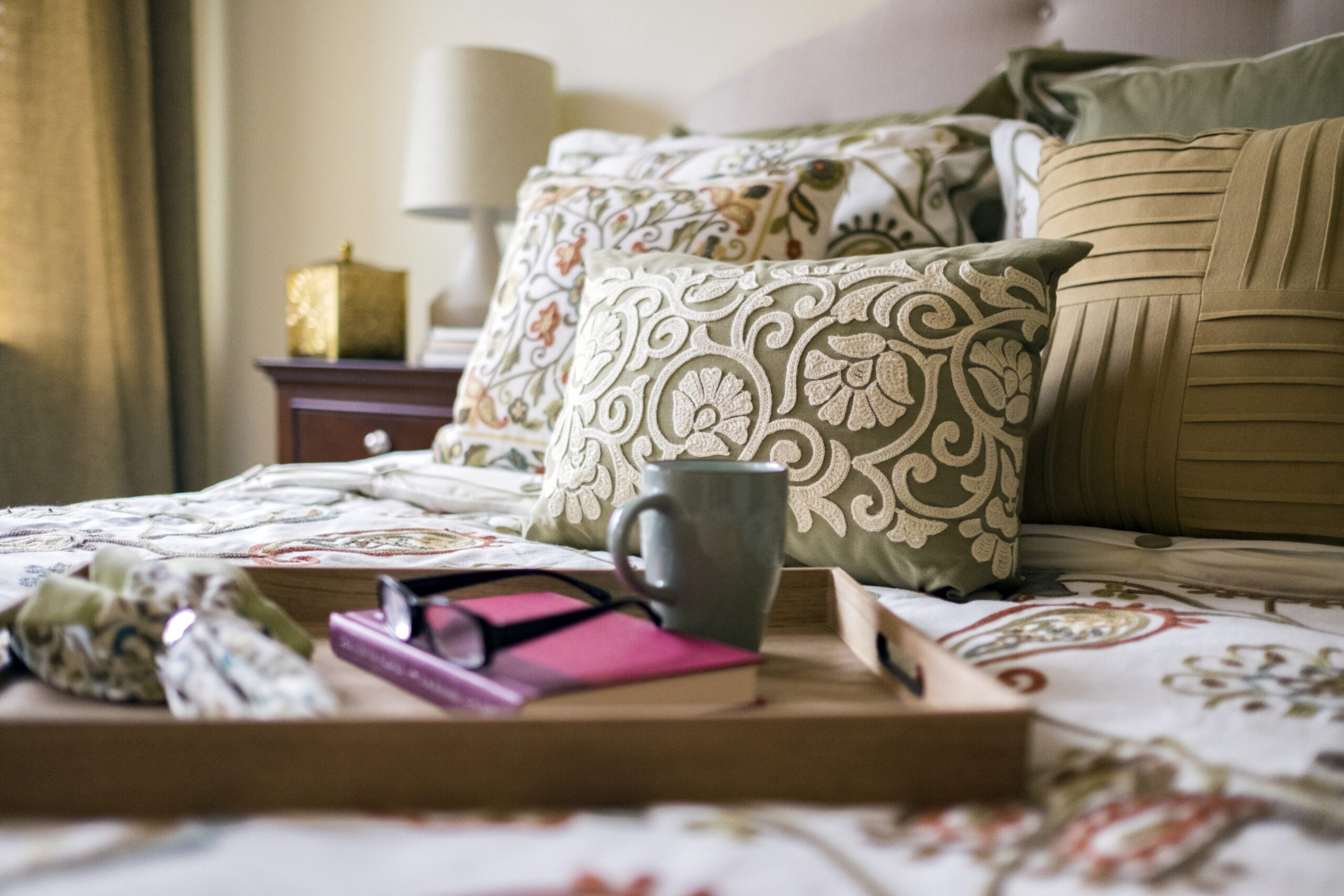The Key to Healthy Aging: Unlocking the Benefits of Good Sleep
Discover how quality sleep can be the key to living your best life.

As we age, making sleep a priority becomes increasingly important for maintaining overall health and well-being. Quality sleep benefits not only rejuvenating the body and mind but also plays a crucial role in countering the effects of diseases and illnesses that commonly affect us as we age.
Experts say adults need between seven and nine hours of good sleep per night with more than one-third of adults getting less than seven hours of sleep per night, on average. Let us explore the transformative power of good sleep habits and discover practical tips to ensure a restful night’s sleep.
At Edgehill, resident wellness is our primary concern. We understand that staying active, getting involved and a nutritious diet leads to a happy, healthy and balanced life which leads to a good night’s sleep.
Quality Sleep Is Important as We Age
Quality sleep is essential for seniors as it contributes to:
- Physical Health: Supports immune function, reduces inflammation and promotes heart health, thus lowering the risk of chronic conditions such as heart disease, diabetes and stroke.
- Cognitive Function: Enhances memory, concentration and cognitive function, thereby reducing the risk of cognitive decline and conditions like Alzheimer’s disease.
- Emotional Well-being: Plays a crucial role in managing stress, anxiety and depression, fostering emotional resilience and overall mental health.
- Physical Mobility: Improves muscle repair and recovery, enhancing physical strength, mobility and balance, consequently reducing the risk of falls and injuries.
The Health and Wellness Benefits of Quality Sleep
- Reduced Risk of Chronic Diseases: Consistent, restorative sleep helps regulate blood pressure, blood sugar levels and hormone production, reducing the risk of developing chronic diseases such as hypertension, diabetes and obesity.
- Enhanced Immune Function: Quality sleep strengthens the immune system, increasing the body’s ability to fight off infections, viruses and diseases, including the common cold and flu.
- Improved Mental Health: Adequate sleep supports emotional regulation and resilience, lowering the risk of depression, anxiety disorders and mood disturbances.
- Promoted Longevity: Good sleep habits have been linked to increased longevity and a higher quality of life in older adults, promoting overall health and vitality.
Tips for Getting a Good Night’s Sleep
Establish a Consistent Sleep Schedule: Maintain regular sleep and wake times, even on weekends, to regulate your body’s internal clock and promote better sleep quality.
- Create a Relaxing Bedtime Routine: Engage in calming activities before bedtime, such as reading, gentle stretching, or meditation, to signal to your body that it’s time to wind down. Turn off electronic devices, such as TVs, computers and smart phones well in advance of your desired bedtime.
- Optimize Your Sleep Environment: Ensure your bedroom is cool, dark and quiet, with a comfortable mattress and supportive pillows to promote restful sleep.
- Edgehill prioritizes creating an optimal sleep environment within its apartment home floor plans. Bedrooms are designed to be comfortable, quiet, and conducive to rest, with features such as blackout curtains and wall soundproofing.
- Limit Stimulants and Electronics: Avoid caffeine, nicotine and electronic devices close to bedtime, as they can interfere with sleep quality and disrupt your body’s natural sleep-wake cycle.
- Stay Active: Regular physical activity can improve sleep quality and duration, so aim for daily exercise, such as walking, yoga, or swimming, to promote better sleep. At Edgehill, residents have access to a variety of activities and programs designed to promote an active lifestyle. From fitness classes to outdoor excursions, there are ample opportunities for residents to engage in physical activity, which can contribute to better sleep quality. By incorporating exercise into their daily routines, residents at Edgehill are better equipped to enjoy restorative sleep each night.
- Watch Your Diet: Avoid heavy meals, spicy foods and large amounts of liquids close to bedtime, as they can cause discomfort and disrupt sleep. Instead, opt for light, nutritious snacks if you feel hungry before bed. Since nutrition plays a crucial role in promoting quality sleep, Edgehill emphasizes the importance of a balanced diet for overall well-being. With chef-prepared meals featuring nutritious ingredients, residents have access to nourishing options that support healthy sleep patterns. Edgehill’s dining services are designed to accommodate dietary preferences and restrictions, further enhancing residents’ ability to maintain optimal sleep hygiene.
Having Trouble Sleeping?
If you are having trouble sleeping or suspect you may have a sleep disorder like insomnia or sleep apnea, reach out to your healthcare provider. They can offer personalized advice and treatment options to help you get the rest you need.
Sleep Helps Fight Illness
Prioritizing good sleep habits is key for seniors to stay healthy, fight off illnesses and feel their best. By following these tips and paying attention to their sleep, seniors can experience the amazing benefits of quality rest and live a vibrant, fulfilling life at any age.